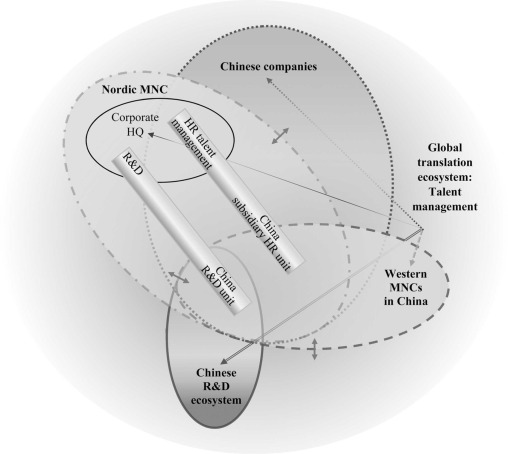In today’s interconnected global landscape, effective communication across language barriers is essential for businesses, governments, and individuals alike. Among the myriad of languages spoken worldwide, Chinese stands out as one of the most widely spoken languages, with over a billion native speakers. As businesses expand their operations and seek to engage with Chinese-speaking markets, the role of certified Chinese translators becomes increasingly crucial. This article explores the significance, challenges, and impact of certified Chinese translators in facilitating cross-cultural communication and fostering collaboration in a multicultural world.
The Significance of Certified Chinese Translators
In the global landscape, certified Chinese translators serve as essential conduits for effective cross-cultural communication, bridging linguistic divides and fostering mutual understanding. Their expertise not only ensures accurate translation but also preserves cultural nuances, making them indispensable assets in an interconnected world.
- Linguistic Expertise: Certified Chinese translators possess a deep understanding of both the source and target languages, enabling them to accurately convey meaning while preserving nuances and context. Their proficiency extends beyond mere translation, encompassing cultural sensitivity and linguistic agility.
- Cultural Competence: Chinese culture is rich and diverse, with regional dialects, customs, and traditions shaping communication patterns. Certified translators are not only proficient in the language but also well-versed in the cultural nuances that influence communication. This cultural competence is essential for bridging the gap between languages and facilitating meaningful interaction.
- Professional Standards: Certification signifies adherence to rigorous standards of professionalism, ethics, and quality in translation. Certified Chinese translators undergo comprehensive training, examinations, and continuing education to maintain their credentials, ensuring reliability and accuracy in their work.
Challenges Faced by Certified Chinese Translators
Navigating the intricacies of translation in the Chinese language presents a myriad of challenges for certified translators. From linguistic complexities to cultural nuances, they must overcome various hurdles to deliver accurate and culturally appropriate translations.
- Linguistic Complexity: The Chinese language is renowned for its complexity, characterized by thousands of characters, tones, and idiomatic expressions. Translating accurately requires a deep understanding of linguistic nuances and the ability to navigate intricacies in grammar and syntax.
- Cultural Sensitivity: Cultural differences can pose challenges in translation, as certain concepts may not have direct equivalents across languages. Certified translators must navigate cultural nuances delicately, ensuring that translations are culturally appropriate and resonate with the target audience.
- Technical Specialization: Translating technical or specialized content presents unique challenges, as it often requires expertise in specific subject matters. Certified Chinese translators with specialized knowledge in fields such as law, medicine, or finance are essential for accurately conveying complex terminology and concepts.
Impact of Certified Chinese Translators in a Multicultural World
As globalization accelerates, the role of certified Chinese translators becomes increasingly pivotal in fostering cross-cultural understanding and collaboration. Their expertise transcends linguistic barriers, facilitating meaningful interactions and driving synergy in diverse global contexts.
- Facilitating Business Expansion: As businesses seek to tap into Chinese-speaking markets, certified translators play a pivotal role in facilitating market entry, communication with stakeholders, and negotiation of business agreements. Their expertise ensures that companies can navigate linguistic and cultural barriers effectively, paving the way for successful expansion.
- Enhancing Cross-Cultural Collaboration: In a globalized world, collaboration across borders is commonplace. Certified Chinese translators act as cultural mediators, facilitating communication and understanding between individuals and organizations from different cultural backgrounds. By bridging linguistic divides, they foster collaboration, innovation, and mutual respect in multicultural settings.
- Ensuring Accuracy and Compliance: In sectors such as legal, medical, and financial services, accuracy and compliance are paramount. Certified Chinese translators with expertise in these fields ensure that translated documents meet industry standards, adhere to legal requirements, and convey information accurately. Their role is instrumental in maintaining trust, integrity, and legal compliance in cross-border transactions and communications.
Best Practices for Engaging Certified Chinese Translators
Navigating the complexities of cross-cultural communication requires a strategic approach, particularly when engaging certified Chinese translators. By implementing best practices, businesses can ensure seamless communication and effective collaboration in multicultural environments.
- Clearly Define Requirements: Clearly articulate your translation needs, including language pairs, subject matter, tone, and intended audience. Providing context and reference materials can help certified translators deliver accurate and contextually appropriate translations.
- Collaborate and Communicate: Foster open communication and collaboration with certified translators throughout the translation process. Clarify any ambiguities, provide feedback, and address any concerns promptly to ensure alignment with your objectives and expectations.
- Respect Professional Expertise: Recognize and respect the expertise of certified Chinese translators. Avoid micromanaging or imposing arbitrary changes, as this can undermine the quality and integrity of the translation. Trust in their proficiency and professionalism to deliver exceptional results.
Conclusion
In an increasingly interconnected world, certified Chinese translators play a vital role in facilitating cross-cultural communication, fostering collaboration, and driving global engagement. Their linguistic expertise, cultural competence, and adherence to professional standards ensure accuracy, reliability, and integrity in translation. As businesses, governments, and individuals navigate the complexities of a multicultural world, the role and impact of certified Chinese translators remain indispensable in bridging linguistic divides, building bridges of understanding, and unlocking opportunities beyond borders.


